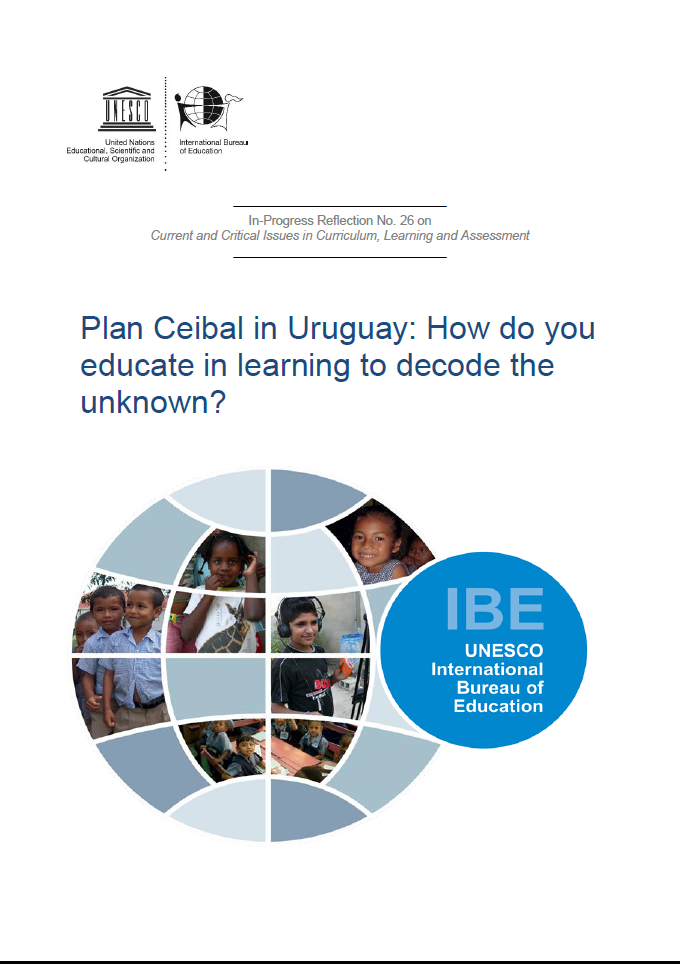Plan Ceibal in Uruguay : How do you educate in learning to decode the unknown?
Abstract
Plan Ceibal is a multi-stakeholder public policy programme in education and innovation with an emphasis on the integration of pedagogy and technology in Uruguay. The following outline provides an overview of some of the most critical dimensions as well as methodological approaches pursued by Plan Ceibal, which are implemented in close collaboration with the whole education sector in the country. Some of these initiatives are not only implemented at a national level, but also in collaboration with a network of schools or education-oriented institutions throughout several countries (e.g. New Pedagogies for Deep Learning, Code.org, Design for Change). Plan Ceibal was originally implemented as an initiative to reduce the digital divide as well as ensure that learners and educators from all socio-economic backgrounds, and regardless of their geographical location, would have access to digital devices, high-quality contents as well as connectivity on a country wide scale. Since its foundation in 2007, Plan Ceibal has worked in close collaboration with the National Administration of Public Education (Administración Nacional de Educación Pública, ANEP) in order to implement solutions that can be adopted by educators in their classes. Additionally, the goal of this programme is to provide platforms and resources that can enhance the learning experience within the classroom, but also promote alternative opportunities of learning in other settings such as at home, after school activities, in communities of practice, socializing settings, among others. However, this has been a learning-by-doing experience where the technological infrastructure played a key role in an early stage when it was required to build a strong educational technology solution. Nevertheless, over a ten years period, after the consolidation of this first phase, the programme offers a national ecosystem of pedagogical innovations, which goes beyond the access to technology. Today it is not limited to offering digital tools and connectivity, but also facilitates comprehensive coordination among institutions. The implementation strategy is the result of enabling social innovation and capacity development, exploring and implementing flexible and innovative forms of learning, teaching and assessing.

